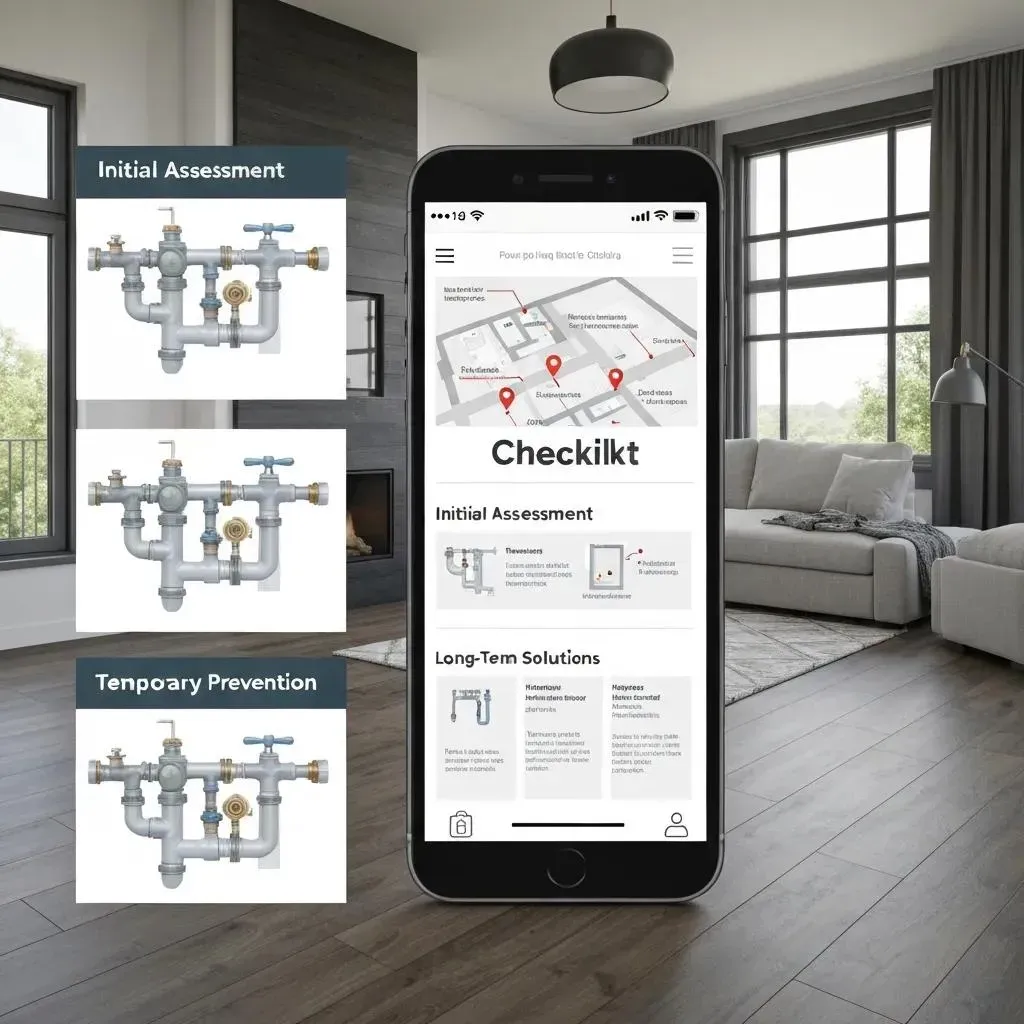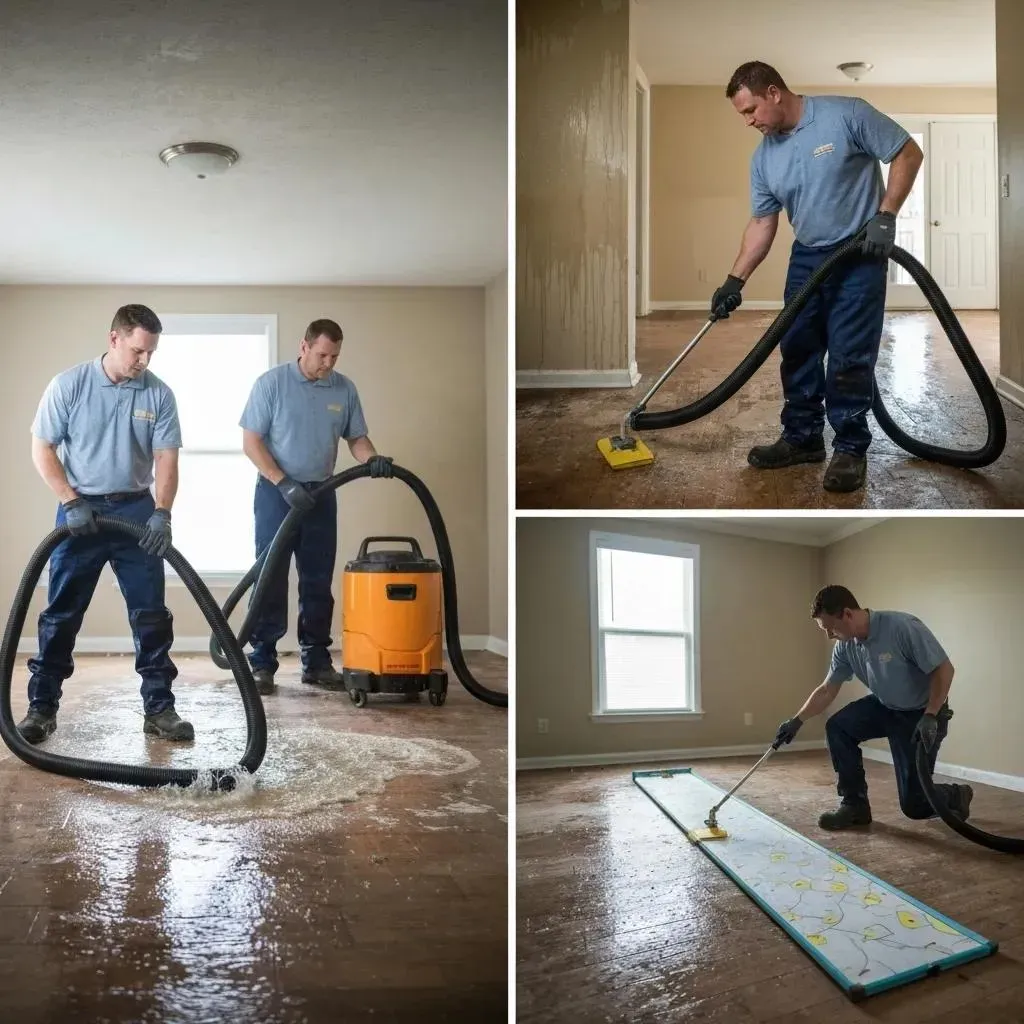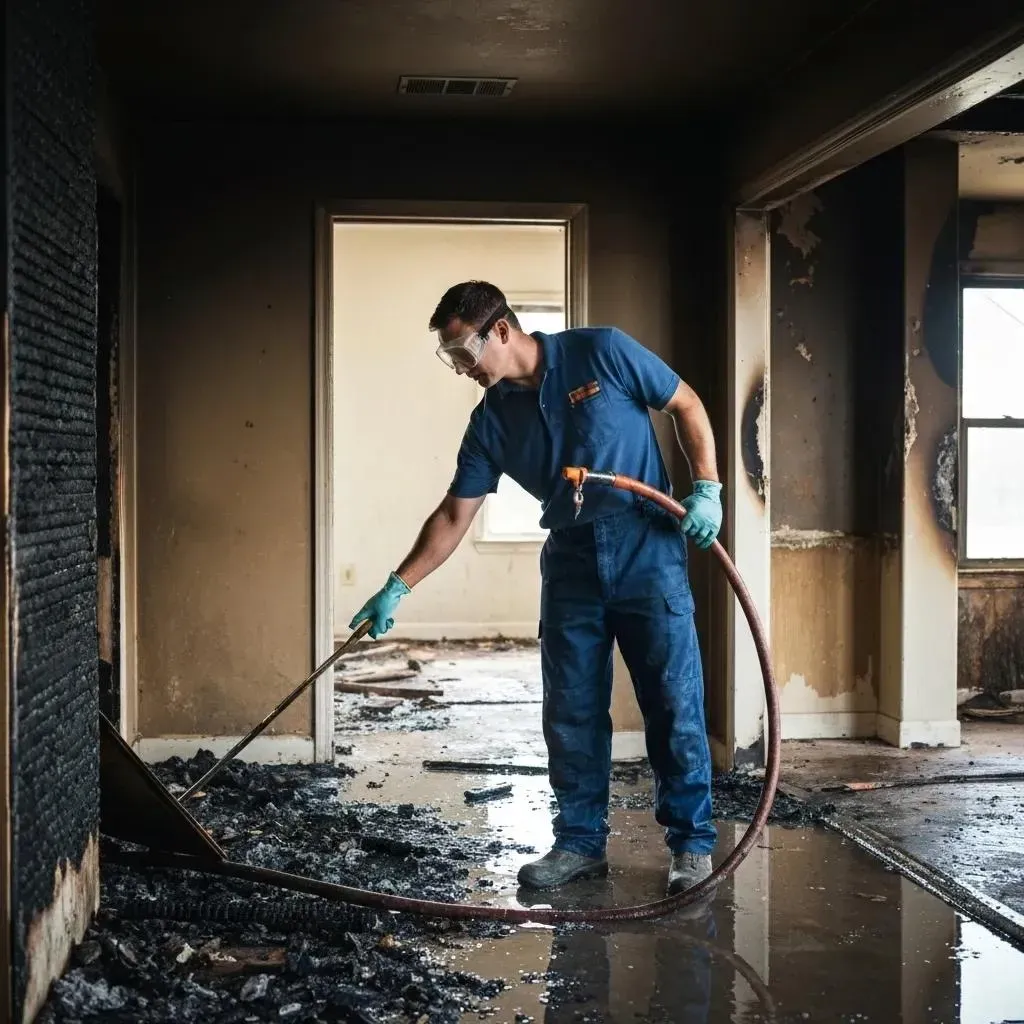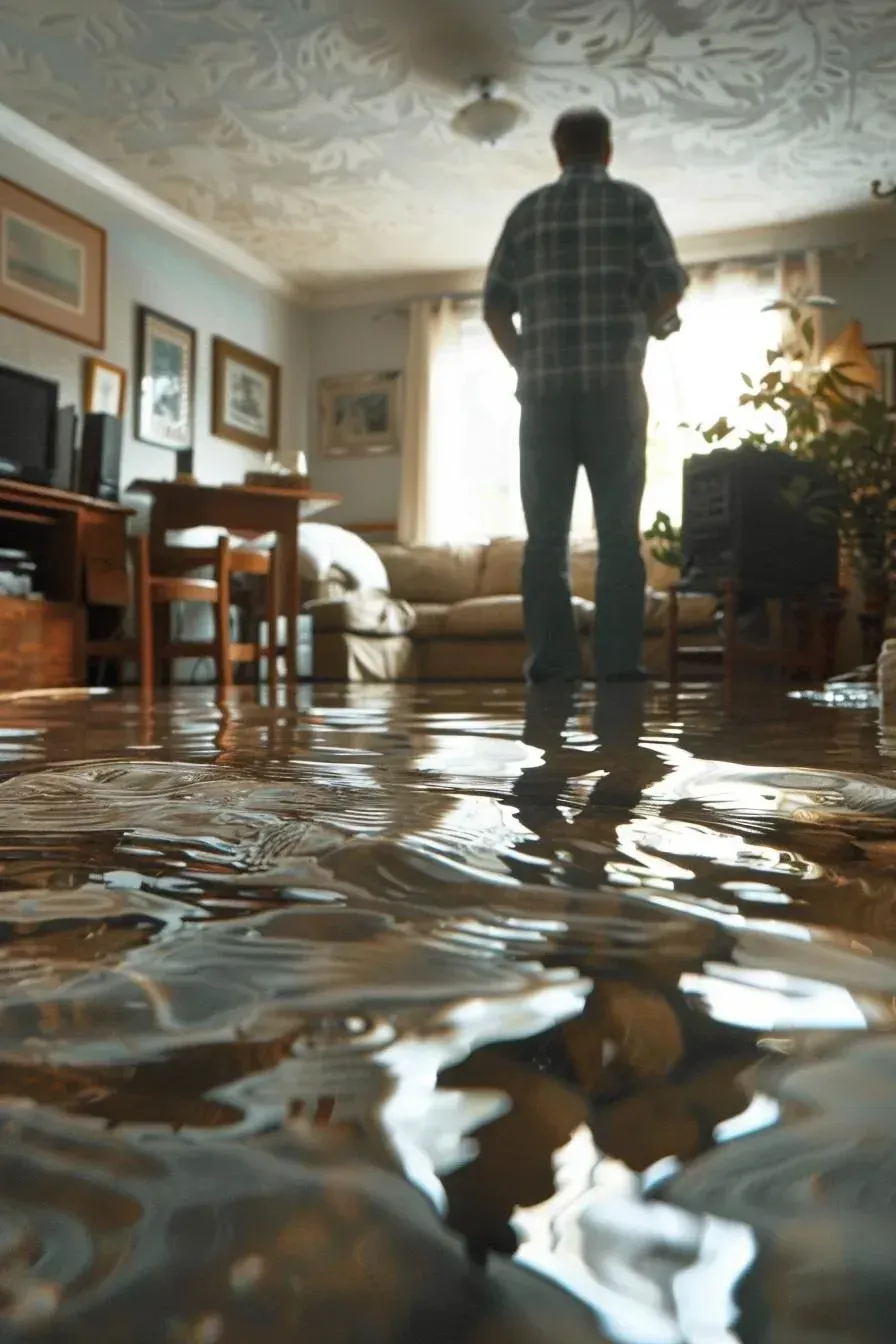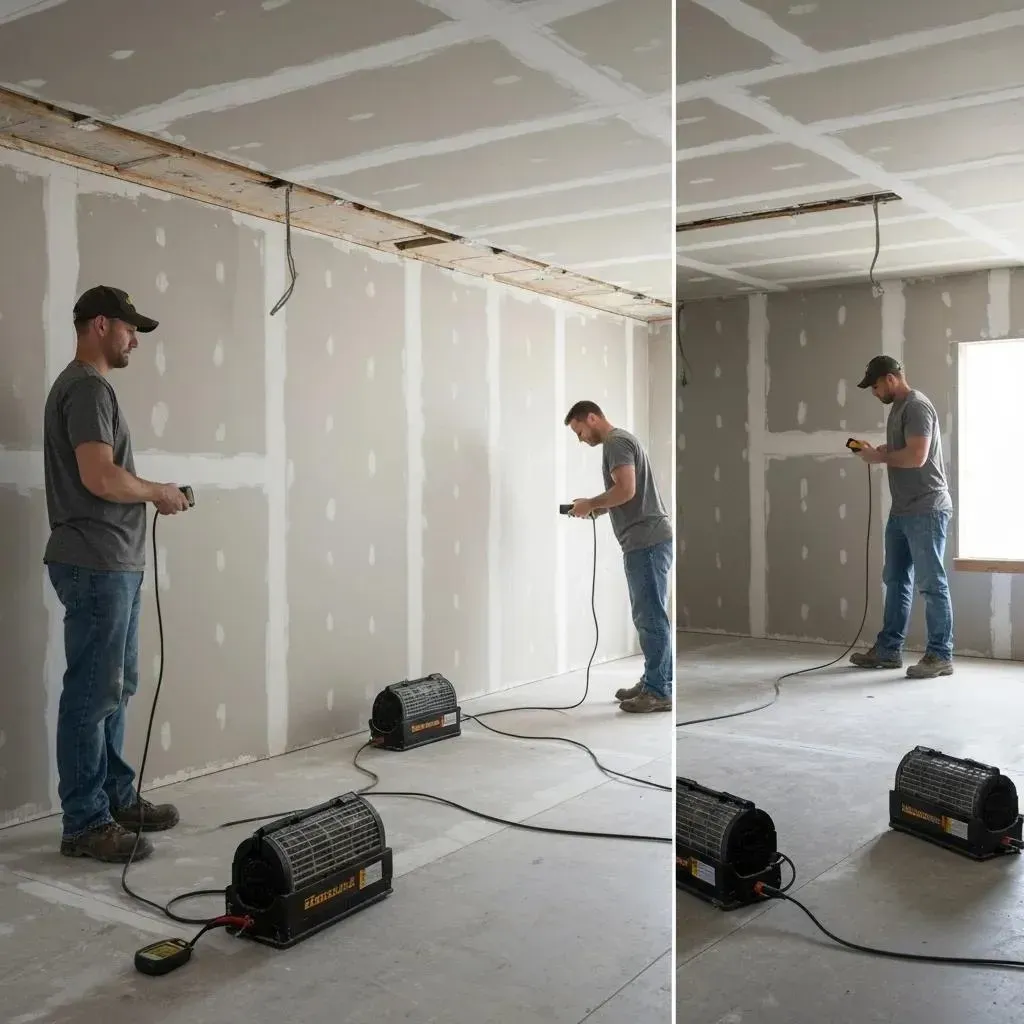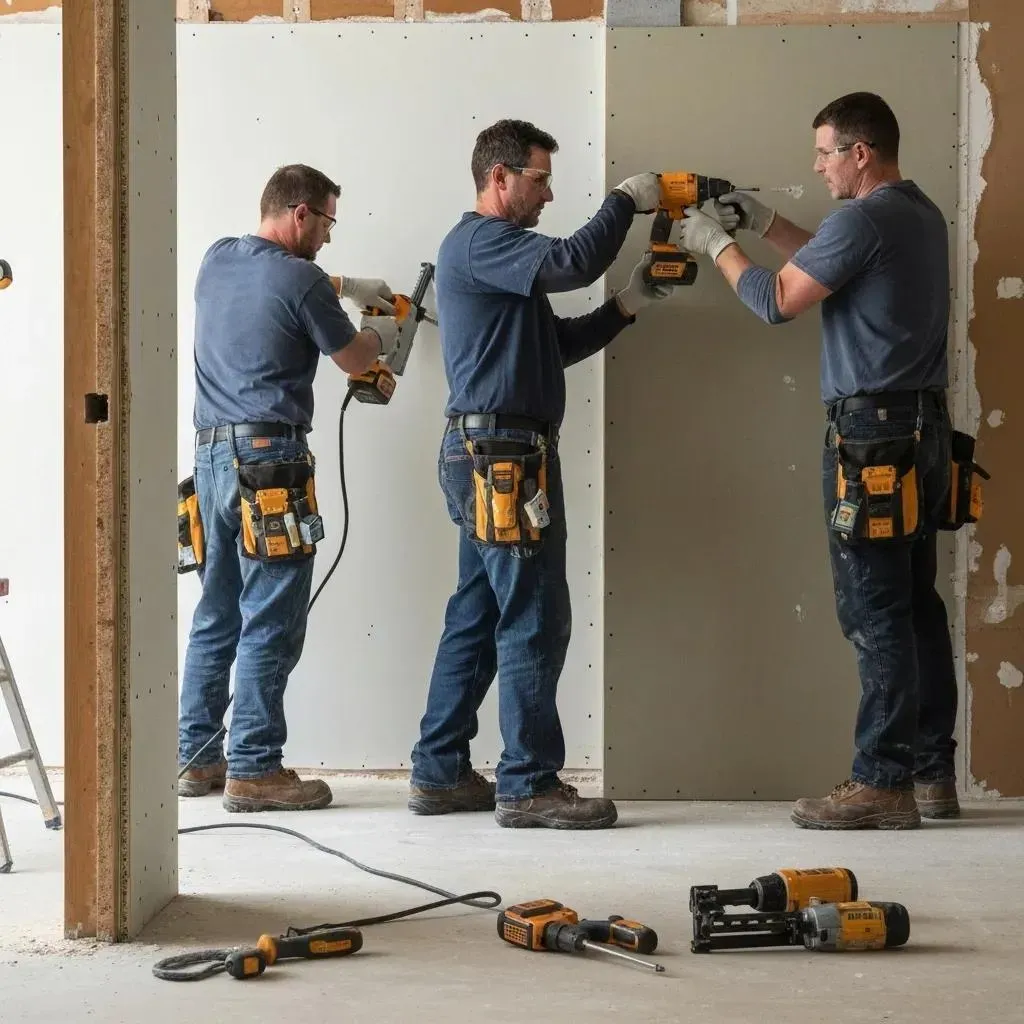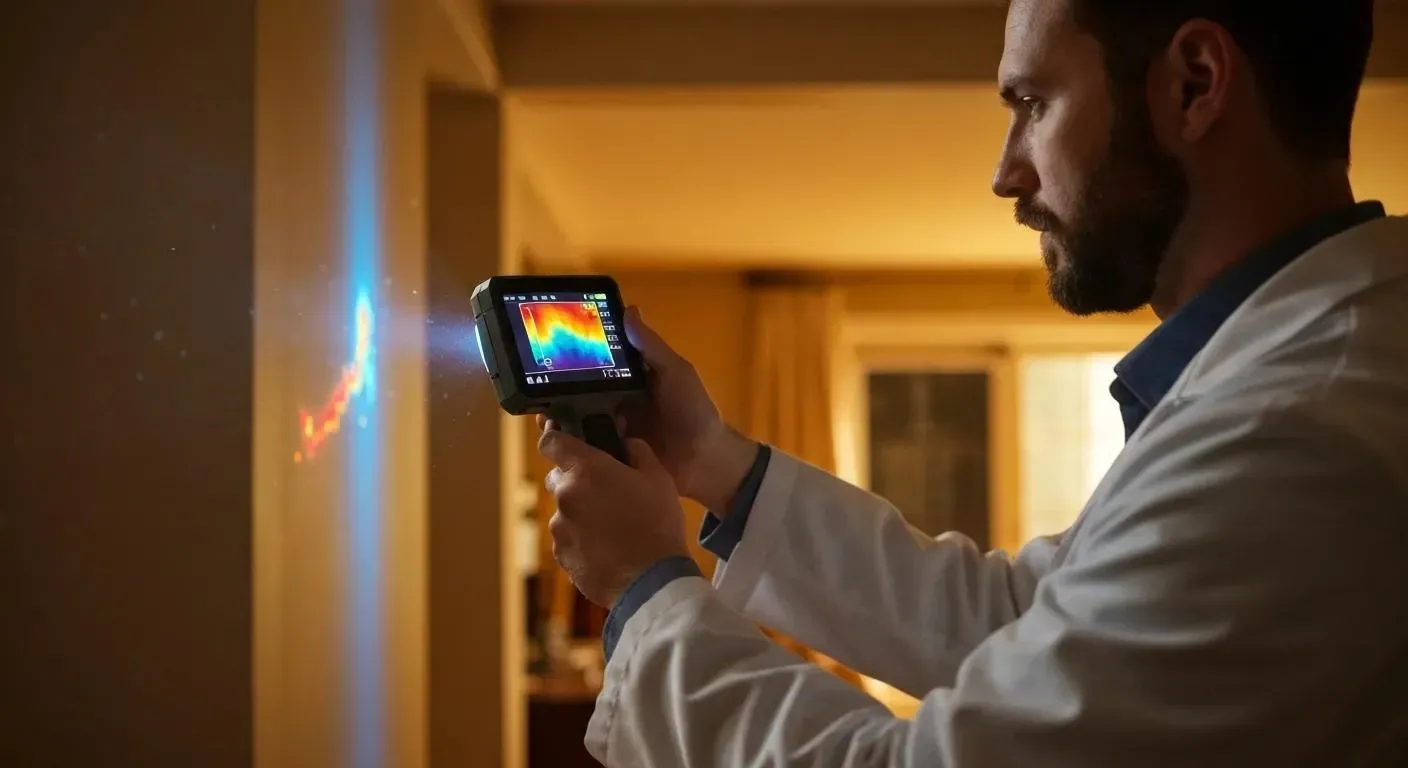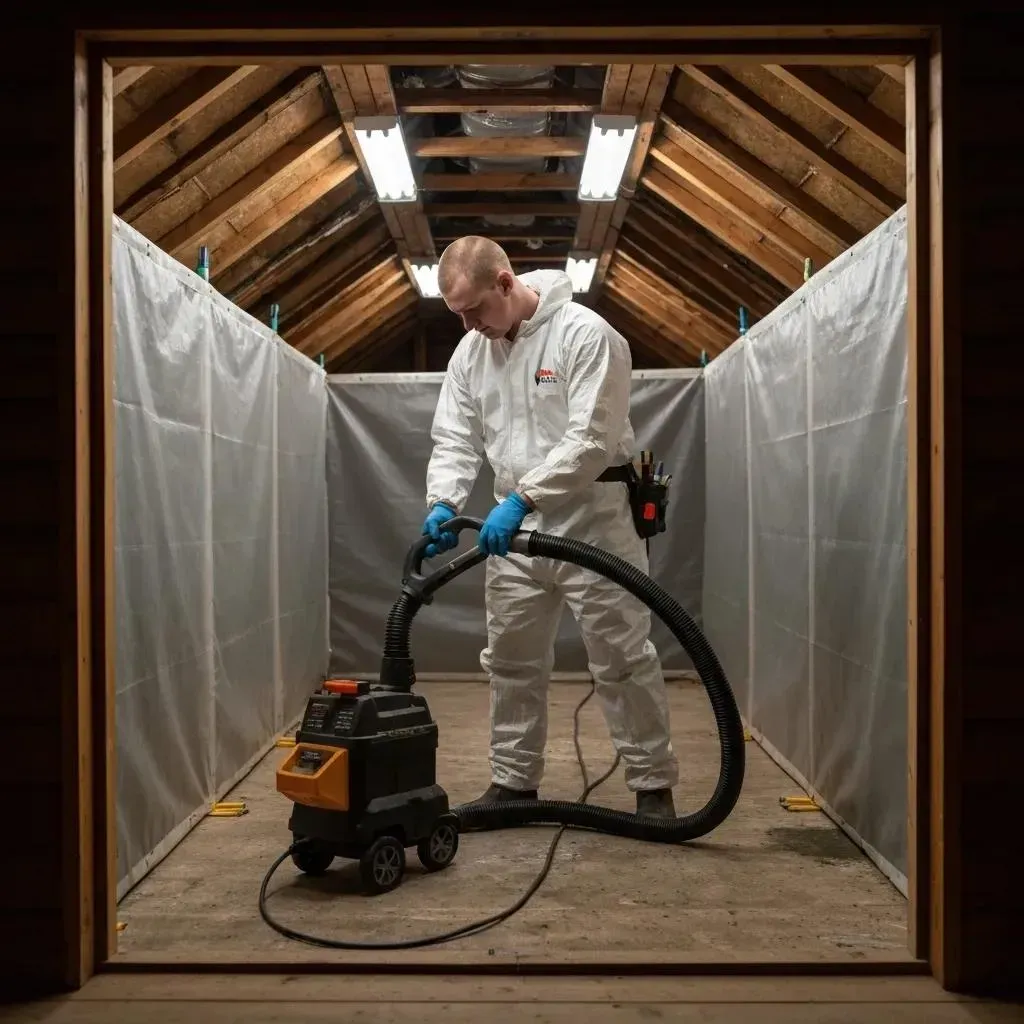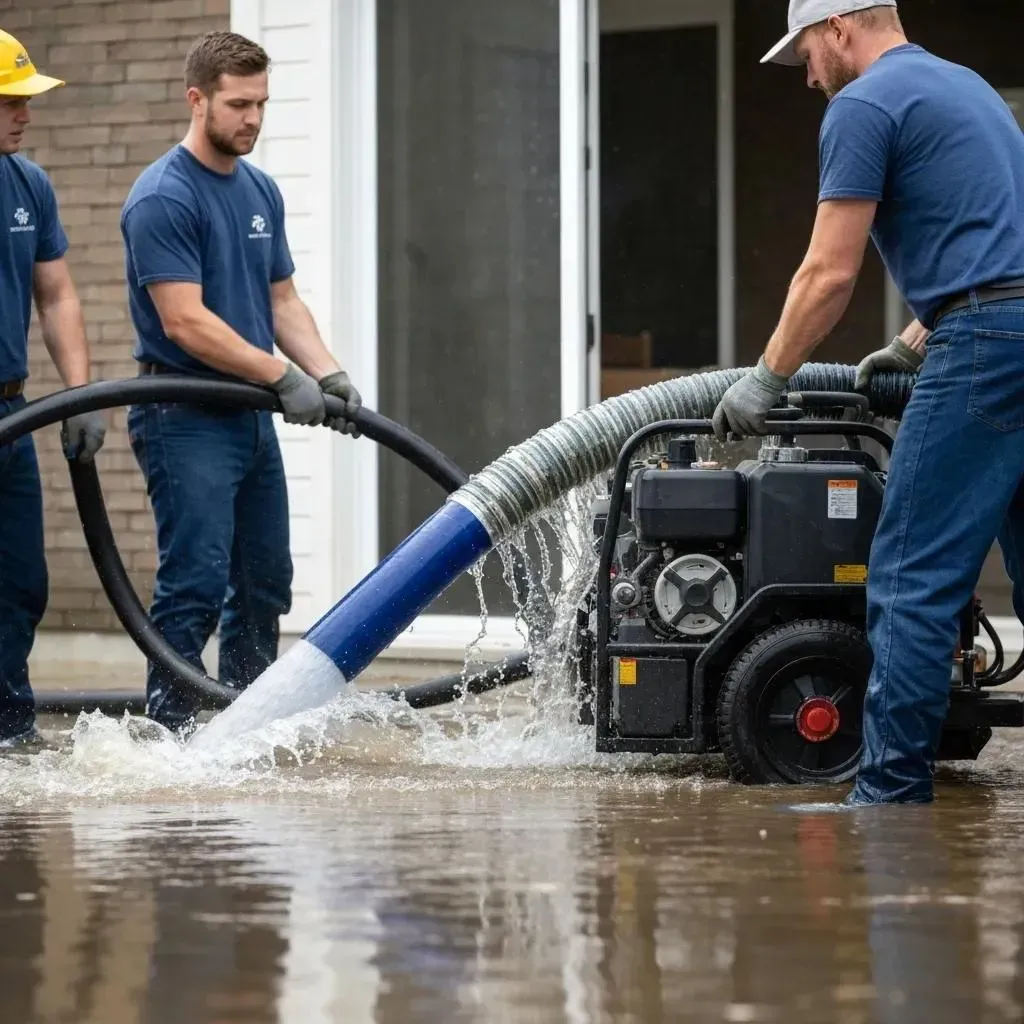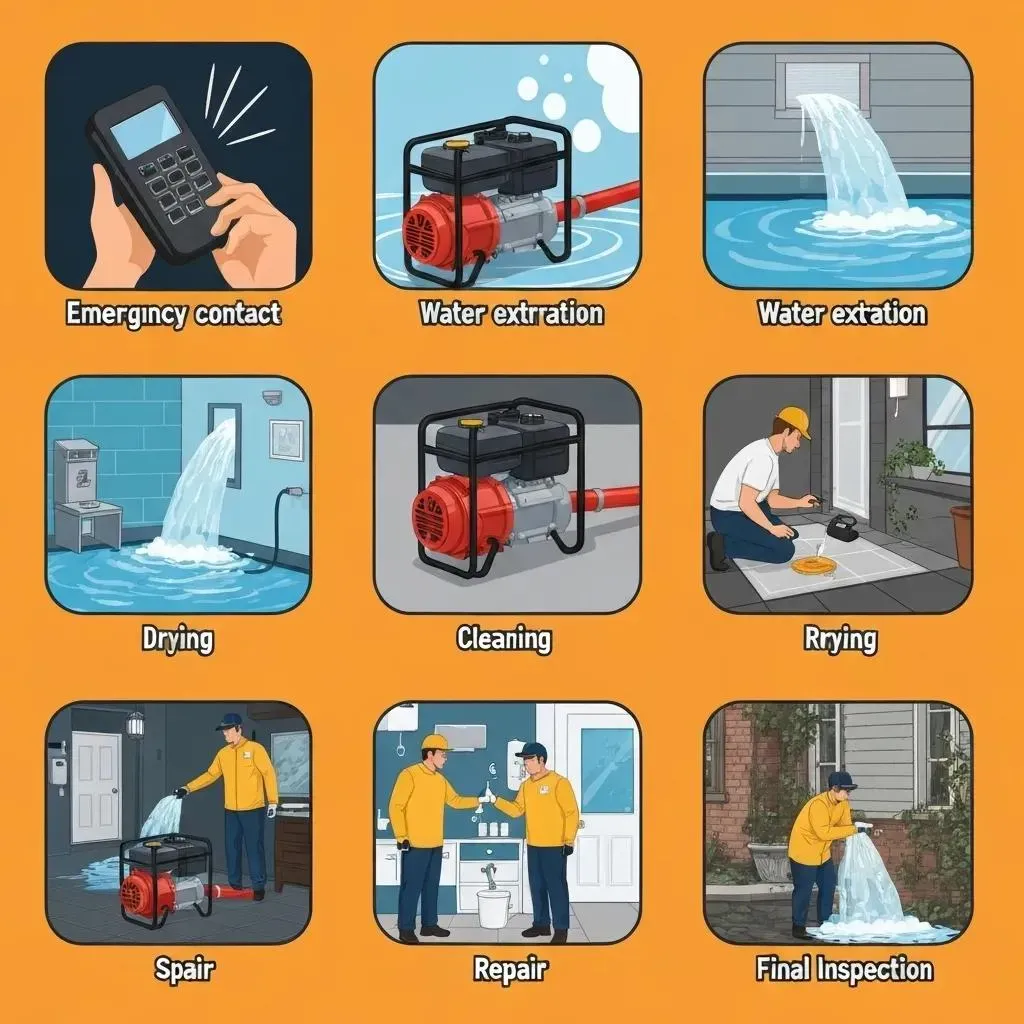Blog
Winter in the Denver metro area brings unique challenges for homeowners, with freezing temperatures and heavy snowfall creating perfect conditions for water damage. As your trusted restoration experts at Accountable Home Services, we've seen firsthand how winter weather can wreak havoc on Colorado homes. The good news is that most winter water damage is preventable with proper preparation and maintenance. Let's explore essential strategies to protect your home during the harsh Colorado winter months.
1. Understanding Winter Water Damage Risks in Colorado
Colorado's dramatic temperature swings make homes particularly vulnerable to water damage during winter months. When temperatures plummet below freezing, water inside pipes expands by approximately 9%, creating tremendous pressure that can cause pipes to burst. This phenomenon affects thousands of Denver area homes each year, resulting in extensive property damage and costly repairs.
The unique climate of the Front Range creates additional challenges that homeowners must navigate. Rapid temperature fluctuations can occur within hours, causing repeated freeze-thaw cycles that stress your home's plumbing system. These cycles particularly affect pipes in unheated areas like garages, crawl spaces, and exterior walls. Understanding these regional weather patterns helps you anticipate and prevent potential problems before they escalate into emergencies.
Ice dams represent another significant threat to Colorado homes during winter. These ridges of ice form at the edge of your roof, preventing melting snow from draining properly. The trapped water can back up under shingles and leak into your home, causing damage to walls, ceilings, and insulation. Have you noticed icicles hanging from your gutters after a snowstorm?
Foundation cracks and basement flooding become more problematic during winter months as well. The freeze-thaw cycle causes soil to expand and contract, potentially creating new cracks or widening existing ones in your foundation. Melting snow can then seep through these vulnerabilities, leading to basement water damage that may go unnoticed until significant harm has occurred.
2. Protecting Your Pipes from Freezing
Preventing frozen pipes requires a multi-faceted approach that addresses both interior and exterior vulnerabilities in your plumbing system. Start by identifying pipes most at risk: those running through unheated spaces, along exterior walls, or in areas with poor insulation. These vulnerable sections need extra attention and protection before temperatures drop.
Pipe insulation serves as your first line of defense against freezing. Foam pipe sleeves, fiberglass wraps, or heat tape can effectively protect exposed pipes in basements, attics, and crawl spaces. Focus particularly on pipes near exterior walls and in unheated garages. Remember that even a small gap in insulation can allow cold air to reach the pipe, so ensure complete coverage from start to finish.
During extreme cold snaps, allowing faucets to drip slightly can prevent freezing by keeping water moving through the system. This technique works particularly well for pipes that have frozen in the past or those you cannot adequately insulate. The cost of the extra water is minimal compared to the potential damage from burst pipes. Additionally, opening cabinet doors under sinks allows warm air to circulate around pipes, providing extra protection during frigid nights.
Smart home technology offers modern solutions for pipe protection. Wi-Fi enabled thermostats can alert you to dangerous temperature drops, while smart water sensors can detect leaks immediately. Some Denver homeowners have installed automatic water shutoff valves that activate when unusual flow patterns indicate a potential pipe burst. What preventive measures have you implemented in your home?
3. Preventing Ice Dams and Roof Damage
Ice dam prevention begins with proper attic insulation and ventilation, creating conditions that keep your roof temperature consistent. Your attic should maintain a temperature close to the outside air temperature, preventing the uneven melting that causes ice dams. Inadequate insulation allows heat from your living spaces to warm the roof unevenly, creating the perfect conditions for ice dam formation.
Regular gutter maintenance plays a crucial role in preventing ice dams and water damage. Clear gutters and downspouts allow melting snow to drain properly, reducing the risk of ice buildup at your roof's edge. Before winter arrives, remove all leaves, twigs, and debris that could obstruct water flow. Consider installing gutter guards to minimize maintenance needs throughout the season.
Snow removal from your roof can prevent ice dam formation, but it must be done carefully to avoid damaging shingles. Use a roof rake to remove snow from the roof's edge after heavy snowfalls, creating a clear path for water drainage. Focus on clearing the first three to four feet from the edge, where ice dams typically form. Professional roof clearing services may be worthwhile for steep or high roofs where DIY removal poses safety risks.
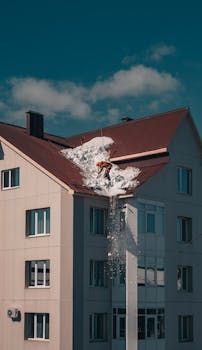
Heat cables installed along your roof's edge and in gutters provide active ice dam prevention. These cables create channels for water to drain even when ice begins to form. While they consume electricity, the protection they offer makes them a worthwhile investment for homes prone to ice dam problems. Have you considered which ice dam prevention methods would work best for your home's specific architecture?
4. Basement and Foundation Protection
Protecting your basement from winter water damage starts with proper grading and drainage around your home's foundation. Ensure the ground slopes away from your foundation at least six inches over the first ten feet. This simple measure directs melting snow and rain away from your home, significantly reducing the risk of basement flooding during spring thaws.
Sump pump maintenance becomes critical during winter months when snowmelt can overwhelm drainage systems. Test your sump pump monthly by pouring water into the pit to ensure it activates properly. Consider installing a battery backup system to maintain protection during power outages, which often accompany severe winter storms. Regular maintenance includes cleaning the pump intake screen and checking the discharge line for ice blockages.
Foundation crack sealing should be completed before winter sets in, as water entering cracks can freeze and expand, causing further damage. Inspect your foundation walls both inside and outside for any cracks or gaps. Small cracks can be sealed with hydraulic cement or polyurethane caulk, while larger issues may require professional waterproofing solutions. Remember that addressing foundation issues promptly prevents more extensive and expensive repairs later.
Window wells require special attention during winter to prevent water accumulation and basement flooding. Ensure proper drainage by keeping wells clear of snow and ice buildup. Installing window well covers provides excellent protection against snow accumulation while still allowing light into your basement. Check that the gravel at the bottom of window wells provides adequate drainage and hasn't become compacted over time.
5. Emergency Preparedness and Response
Despite your best prevention efforts, winter water damage emergencies can still occur. Knowing how to respond quickly can minimize damage and reduce restoration costs. Create an emergency plan that includes the location of your main water shutoff valve and ensure all family members know how to use it. Quick action in shutting off water can prevent thousands of dollars in damage.
Keep essential emergency supplies readily accessible during winter months. This includes a wet/dry vacuum for water removal, towels and mops for initial cleanup, and plastic sheeting to protect furniture and belongings. Having these items on hand allows you to begin mitigation immediately while waiting for professional help. Document any damage with photos and videos for insurance purposes before beginning cleanup efforts.
Establish a relationship with a trusted restoration company before you need emergency services. Accountable Home Services offers 24/7 emergency response throughout the Denver metro area, with crews ready to respond within 60 minutes. Our IICRC-certified technicians have the expertise and equipment to handle any winter water damage scenario. Save our emergency number (720) 620-3272 in your phone for immediate access when needed.
Insurance preparation plays a vital role in your emergency response plan. Review your homeowner's insurance policy to understand what water damage scenarios are covered. Many policies exclude gradual damage from lack of maintenance but cover sudden pipe bursts. Keep an updated home inventory with photos of valuable items, and know your deductible amount. What steps have you taken to prepare for potential winter water emergencies?
Conclusion
Winter water damage prevention requires vigilance and proactive maintenance, but the effort invested now can save you from costly repairs and stressful emergencies later. By implementing these protective measures - from insulating pipes and preventing ice dams to maintaining proper drainage and preparing for emergencies - you can significantly reduce your risk of winter water damage. Remember that Accountable Home Services is here to support Denver area homeowners with both prevention advice and rapid emergency response when needed. Don't wait until disaster strikes; take action today to protect your home from winter's harsh effects and enjoy peace of mind throughout the season.

